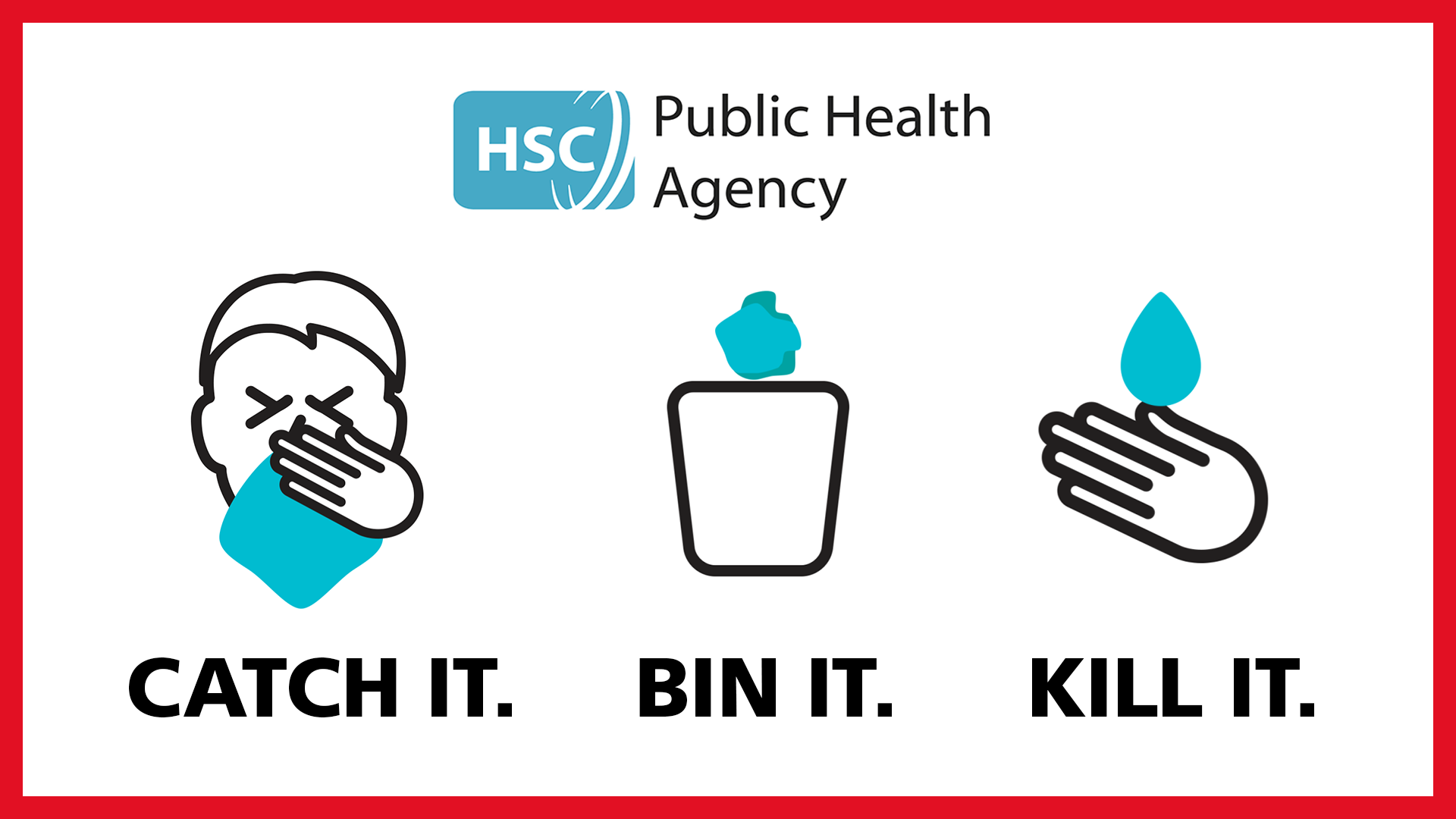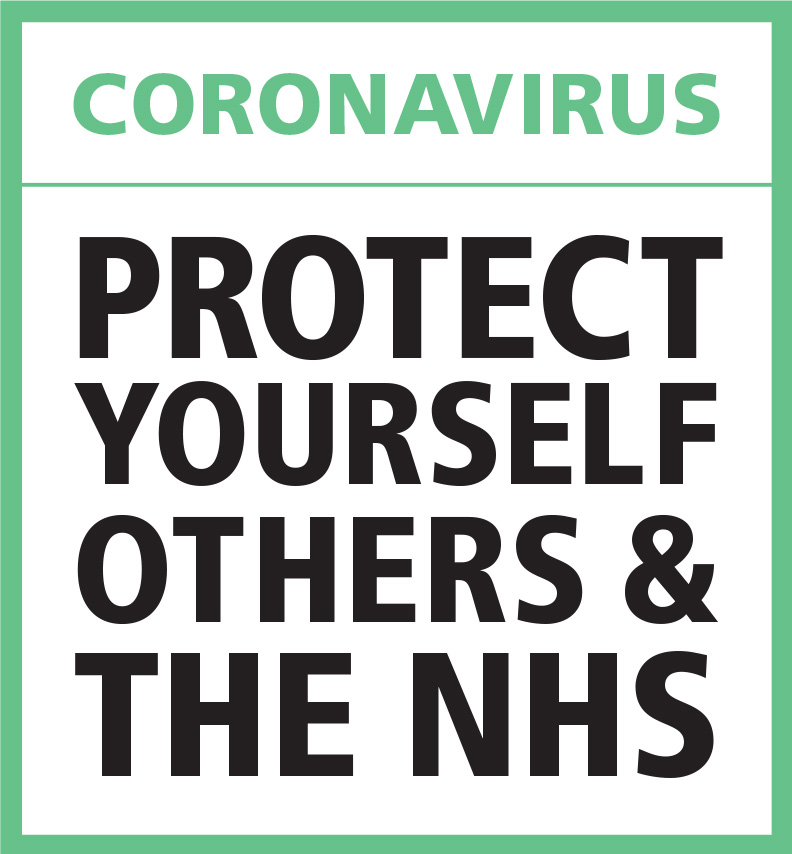Latest Advice from Public Health Authority NI
Everyone in Northern Ireland should now be social distancing
COVID-19 is a new illness that can affect your lungs and airways. It’s caused by a type of virus called coronavirus.
Everyone should do what they can to stop coronavirus spreading.
Social distancing will help reduce the transmission of coronavirus by reducing the social interaction between people.
You should:
- Avoid contact with someone who is displaying symptoms of coronavirus – these symptoms include high temperature and/or new and continuous cough;
- avoid non-essential use of public transport, varying your travel times to avoid rush hour, when possible
- work from home, where possible – your employer should support you to do this.
- avoid large gatherings, and gatherings in smaller public spaces such as pubs, cinemas, restaurants, theatres, bars, clubs
- avoid gatherings with friends and family – keep in touch using remote technology such as phone, internet, and social media
- use telephone or online services to contact your GP or other essential services.
Everyone should be trying to follow these measures as much as possible.
They strongly advise you to follow the above measures and to significantly limit your face-to-face interaction with friends and family if possible, particularly if you:
- are over 70;
- have an underlying health condition;
- are pregnant.
This advice is likely to be in place for some weeks
Preventing the spread of infection
Like seasonal flu, the same public health advice applies for COVID-19 (Coronavirus): if you cough or sneeze, use a tissue to cover your mouth and nose, throw it away carefully after use, and wash your hands.

The best way to prevent the spread of infections, including coronavirus, is good personal hygiene. This means washing your hands regularly using soap and water and drying them with paper towels.
What should I do if I think I have coronavirus?
If you have either:
- a high temperature – this means you feel hot to touch on your chest or back (you do not need to measure your temperature);
- a new, continuous cough – this means coughing a lot for more than an hour, or 3 or more coughing episodes in 24 hours (if you usually have a cough, it may be worse than usual).
Everyone in your house must stay at home.
Do not go to your GP surgery, pharmacy or hospital.
if you have symptoms of coronavirus, you’ll need to stay at home for 7 days;
if you live with someone who has symptoms, you’ll need to stay at home for 14 days from the day the first person in the home started having symptoms; however,
if you develop symptoms during this 14-day period, you’ll need to stay at home for 7 days from the day your symptoms started (regardless of what day you are on in the original 14-day period). This may mean you have to stay at home for a maximum of 21 days;
if you have symptoms and live with someone who is 70 or over, has a long-term condition, is pregnant or has a weakened immune system, try to find somewhere else they can stay with for the 14-day isolation period;
it is likely that people living within a household will infect each other or be infected already. Staying at home for 14 days will greatly reduce the overall amount of infection the household could pass on to others in the community;
testing for coronavirus is not needed if you are well enough to stay at home.
If you have to stay at home together, try to keep away from each other as much as possible. Guidance on this can be found on the Public Health England website:
www.gov.uk/government/publications/covid-19-stay-at-home-guidance/stay-at-home-guidance-for-households-with-possible-coronavirus-covid-19-infection
You can ring NHS 111 for information or advice and they will help you decide if you need to contact your GP.
Calling your GP is only necessary if you have:
- an existing health condition;
- problems with your immune system;
- very serious symptoms.
Do not attend your GP surgery or emergency department in person before calling ahead and speaking with someone.
If it is a medical emergency and you need to call an ambulance, dial 999 and inform the operator of your symptoms.
For more information about COVID-19, please visit:
https://www.publichealth.hscni.net/news/covid-19-coronavirus



